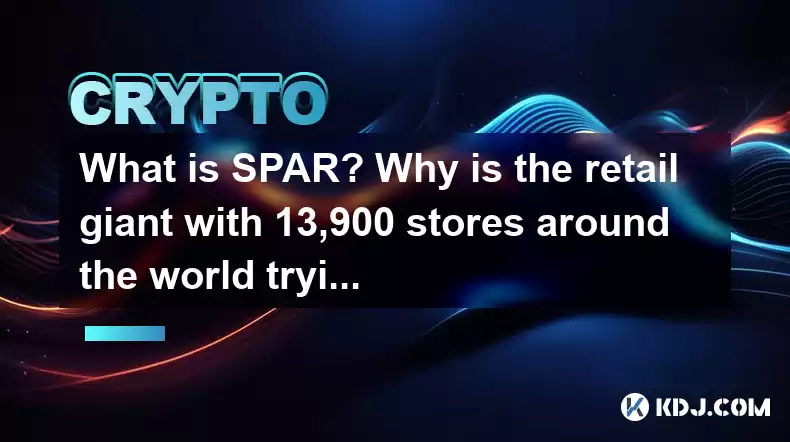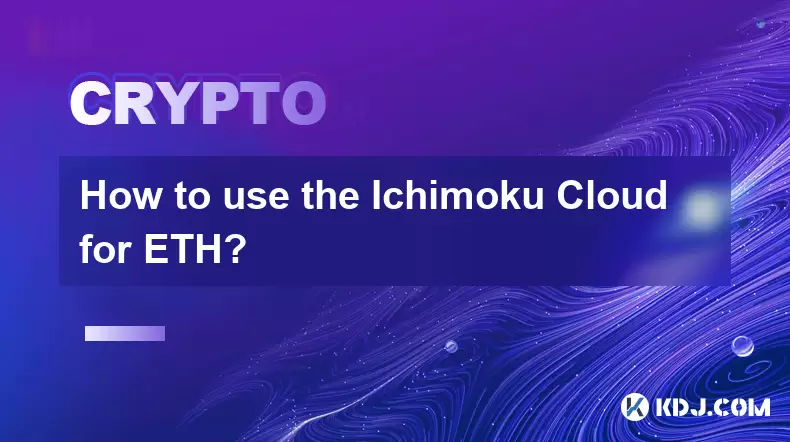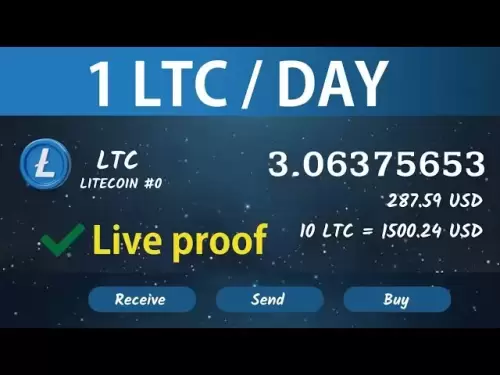-
 Bitcoin
Bitcoin $118800
-0.22% -
 Ethereum
Ethereum $3677
-4.47% -
 XRP
XRP $3.504
-3.02% -
 Tether USDt
Tether USDt $1.000
-0.01% -
 Solana
Solana $200.2
2.87% -
 BNB
BNB $762.2
-2.24% -
 USDC
USDC $0.9998
-0.02% -
 Dogecoin
Dogecoin $0.2644
-5.03% -
 Cardano
Cardano $0.8700
-5.51% -
 TRON
TRON $0.3128
-1.32% -
 Hyperliquid
Hyperliquid $43.99
-7.14% -
 Stellar
Stellar $0.4609
-5.85% -
 Sui
Sui $3.895
-3.54% -
 Chainlink
Chainlink $19.14
-5.01% -
 Hedera
Hedera $0.2680
-6.05% -
 Avalanche
Avalanche $24.99
-4.45% -
 Bitcoin Cash
Bitcoin Cash $518.6
-2.87% -
 Shiba Inu
Shiba Inu $0.00001507
-5.13% -
 Litecoin
Litecoin $115.0
-3.02% -
 Toncoin
Toncoin $3.444
2.27% -
 UNUS SED LEO
UNUS SED LEO $8.991
0.02% -
 Polkadot
Polkadot $4.400
-5.50% -
 Uniswap
Uniswap $10.43
-8.70% -
 Ethena USDe
Ethena USDe $1.001
0.01% -
 Monero
Monero $325.9
0.39% -
 Pepe
Pepe $0.00001372
-4.14% -
 Bitget Token
Bitget Token $4.811
-3.32% -
 Dai
Dai $1.000
0.00% -
 Aave
Aave $306.7
-8.06% -
 Bittensor
Bittensor $434.2
0.25%
What is SPAR? Why is the retail giant with 13,900 stores around the world trying Bitcoin payments?
SPAR, a retail giant with 13,900 stores worldwide, is integrating Bitcoin payments to attract tech-savvy customers and reduce transaction fees.
Apr 21, 2025 at 02:21 am

What is SPAR? Why is the retail giant with 13,900 stores around the world trying Bitcoin payments?
SPAR is a globally recognized retail giant with a network of 13,900 stores across the world. Known for its diverse product offerings and customer-centric approach, SPAR has always been at the forefront of retail innovation. Recently, the company has made headlines by integrating Bitcoin payments into its payment systems, marking a significant shift in the retail industry's approach to cryptocurrencies.
SPAR's Background and Global Presence
SPAR, which stands for Société des Produits Alimentaires Régionaux, was founded in the Netherlands in 1932. Over the decades, it has expanded its footprint to become one of the largest retail chains globally, with stores in over 48 countries. SPAR's business model focuses on providing a wide range of products, from groceries to household items, ensuring that it caters to the needs of a diverse customer base. This global presence has positioned SPAR as a leader in the retail sector, constantly seeking new ways to enhance customer experience and streamline operations.
The Rise of Bitcoin and Cryptocurrency in Retail
The adoption of Bitcoin payments by SPAR is a reflection of the growing acceptance of cryptocurrencies in the retail sector. Bitcoin, the first and most well-known cryptocurrency, was created in 2009 as a decentralized digital currency. Over the years, it has gained significant traction, with more businesses recognizing its potential to offer faster, more secure, and cost-effective transactions. The retail industry, in particular, has seen an increasing number of companies integrating cryptocurrencies into their payment systems, driven by the demand from tech-savvy consumers and the promise of reduced transaction fees.
SPAR's Decision to Implement Bitcoin Payments
SPAR's decision to implement Bitcoin payments stems from a strategic move to stay ahead of the curve in the rapidly evolving retail landscape. By embracing Bitcoin, SPAR aims to attract a new demographic of customers who prefer using cryptocurrencies for their transactions. Additionally, the company sees the potential for reduced transaction fees and faster payment processing compared to traditional payment methods. This move aligns with SPAR's commitment to innovation and customer satisfaction, as it seeks to provide a seamless shopping experience across all its stores worldwide.
How SPAR Implements Bitcoin Payments
To implement Bitcoin payments, SPAR has partnered with leading cryptocurrency payment processors to ensure a smooth and secure transaction process. Here is a detailed look at how SPAR facilitates Bitcoin payments:
Integration with Payment Processors: SPAR collaborates with reputable cryptocurrency payment gateways that convert Bitcoin into the local currency at the point of sale. This integration ensures that merchants receive payments in their preferred currency without the need to handle cryptocurrencies directly.
Checkout Process: At the checkout, customers can select Bitcoin as their payment method. They scan a QR code provided by the cashier, which directs them to their Bitcoin wallet app. After confirming the transaction amount, customers authorize the payment, and the Bitcoin is transferred to the payment processor.
Transaction Confirmation: Once the Bitcoin transaction is confirmed on the blockchain, the payment processor converts the Bitcoin into the local currency and transfers the funds to the merchant's account. This process typically takes a few minutes, ensuring that the transaction is completed swiftly and efficiently.
Customer Support: SPAR provides dedicated customer support to assist with any issues related to Bitcoin payments. This includes guidance on how to set up a Bitcoin wallet and troubleshooting any technical difficulties that may arise during the payment process.
Benefits of Bitcoin Payments for SPAR and Customers
The integration of Bitcoin payments offers several benefits for both SPAR and its customers. For SPAR, the adoption of Bitcoin can lead to lower transaction fees compared to traditional credit card payments, which can result in significant cost savings over time. Additionally, Bitcoin transactions are faster and more secure, reducing the risk of fraud and chargebacks, which can be a significant concern for retailers.
For customers, the ability to pay with Bitcoin provides greater flexibility and convenience. Cryptocurrency enthusiasts can use their preferred digital currency for everyday purchases, eliminating the need to convert their Bitcoin into fiat currency. Furthermore, Bitcoin payments offer enhanced privacy, as transactions do not require the sharing of personal information, which can be a significant advantage for those concerned about data security.
Challenges and Considerations
While the adoption of Bitcoin payments presents numerous opportunities, it also comes with its own set of challenges and considerations. One of the primary concerns is the volatility of Bitcoin's value, which can fluctuate significantly over short periods. This volatility can pose a risk for merchants, as the value of the Bitcoin received may differ from the time of the transaction to the time it is converted into the local currency.
Another challenge is the limited adoption of cryptocurrencies among the general population. While the number of Bitcoin users is growing, it still represents a small fraction of the overall consumer base. As such, SPAR must ensure that its traditional payment methods remain available and accessible to cater to the majority of its customers.
Additionally, regulatory compliance is a critical consideration for SPAR. The company must navigate the complex landscape of cryptocurrency regulations, which can vary significantly from one country to another. Ensuring compliance with local laws and regulations is essential to avoid legal issues and maintain the trust of its customers.
Frequently Asked Questions
Q: How does SPAR ensure the security of Bitcoin transactions?
A: SPAR ensures the security of Bitcoin transactions by partnering with reputable cryptocurrency payment processors that use advanced security measures, including encryption and multi-signature wallets. Additionally, the blockchain technology underlying Bitcoin provides a high level of security and transparency, making it difficult for fraudulent transactions to occur.
Q: Can customers receive change in Bitcoin if their purchase amount is less than the Bitcoin they send?
A: Yes, if a customer's Bitcoin payment exceeds the purchase amount, the payment processor can return the change in Bitcoin to the customer's wallet. This process is handled automatically by the payment gateway, ensuring that customers receive the correct amount of change.
Q: Does SPAR plan to accept other cryptocurrencies in addition to Bitcoin?
A: While SPAR has started with Bitcoin, the company may consider accepting other cryptocurrencies in the future, depending on customer demand and the regulatory environment. Currently, the focus is on ensuring a smooth and reliable experience with Bitcoin payments.
Q: How does SPAR handle Bitcoin transaction fees?
A: Bitcoin transaction fees are typically borne by the customer and are included in the total amount paid. However, SPAR works with payment processors to minimize these fees and ensure that they are competitive with other payment methods.
Disclaimer:info@kdj.com
The information provided is not trading advice. kdj.com does not assume any responsibility for any investments made based on the information provided in this article. Cryptocurrencies are highly volatile and it is highly recommended that you invest with caution after thorough research!
If you believe that the content used on this website infringes your copyright, please contact us immediately (info@kdj.com) and we will delete it promptly.
- Meme Coin Mania: Dogecoin, PEPE, and the Crypto Presale Craze
- 2025-07-22 22:50:13
- Nicotine Pouches: A Sweet Threat to Teens' Gum Health?
- 2025-07-22 22:30:13
- Score Big with 1xBet: Your Guide to Football and Big Game Bets
- 2025-07-22 22:30:13
- Paul Hollis and the US Mint: A New Era Under Trump's Appointment?
- 2025-07-22 22:50:13
- JPMorgan, Bitcoin, and Ethereum: A Wall Street Giant Warms Up to Crypto
- 2025-07-22 22:50:14
- Bitcoin's Market Share: Alt-Season in the Air?
- 2025-07-22 22:55:14
Related knowledge

What is Chainlink (LINK)?
Jul 22,2025 at 02:14am
Understanding Chainlink (LINK): The Decentralized Oracle NetworkChainlink is a decentralized oracle network designed to bridge the gap between blockch...

What is Avalanche (AVAX)?
Jul 22,2025 at 08:35am
What is Avalanche (AVAX)?Avalanche (AVAX) is a decentralized, open-source blockchain platform designed to support high-performance decentralized appli...

What is Polkadot (DOT)?
Jul 19,2025 at 06:35pm
Understanding the Basics of Polkadot (DOT)Polkadot (DOT) is a multi-chain network protocol designed to enable different blockchains to transfer messag...

What is Monero (XMR)?
Jul 21,2025 at 10:07am
What is Monero (XMR)?Monero (XMR) is a decentralized cryptocurrency designed to provide enhanced privacy and anonymity for its users. Unlike Bitcoin a...

How to add indicators to Ethereum chart on TradingView?
Jul 19,2025 at 07:15am
What Is an Ethereum Chart on TradingView?The Ethereum chart on TradingView is a visual representation of the price movement of Ethereum (ETH) over a s...

How to use the Ichimoku Cloud for ETH?
Jul 18,2025 at 09:56pm
Understanding the Ichimoku Cloud and Its ComponentsThe Ichimoku Cloud, also known as Ichimoku Kinko Hyo, is a versatile technical analysis tool that p...

What is Chainlink (LINK)?
Jul 22,2025 at 02:14am
Understanding Chainlink (LINK): The Decentralized Oracle NetworkChainlink is a decentralized oracle network designed to bridge the gap between blockch...

What is Avalanche (AVAX)?
Jul 22,2025 at 08:35am
What is Avalanche (AVAX)?Avalanche (AVAX) is a decentralized, open-source blockchain platform designed to support high-performance decentralized appli...

What is Polkadot (DOT)?
Jul 19,2025 at 06:35pm
Understanding the Basics of Polkadot (DOT)Polkadot (DOT) is a multi-chain network protocol designed to enable different blockchains to transfer messag...

What is Monero (XMR)?
Jul 21,2025 at 10:07am
What is Monero (XMR)?Monero (XMR) is a decentralized cryptocurrency designed to provide enhanced privacy and anonymity for its users. Unlike Bitcoin a...

How to add indicators to Ethereum chart on TradingView?
Jul 19,2025 at 07:15am
What Is an Ethereum Chart on TradingView?The Ethereum chart on TradingView is a visual representation of the price movement of Ethereum (ETH) over a s...

How to use the Ichimoku Cloud for ETH?
Jul 18,2025 at 09:56pm
Understanding the Ichimoku Cloud and Its ComponentsThe Ichimoku Cloud, also known as Ichimoku Kinko Hyo, is a versatile technical analysis tool that p...
See all articles

























































































